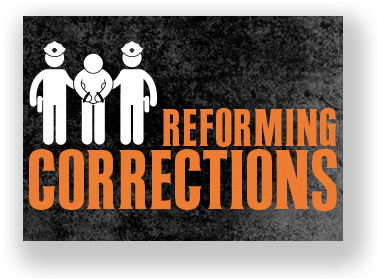We post news and comment on federal criminal justice issues, focused primarily on trial and post-conviction matters, legislative initiatives, and sentencing issues.
YOU’LL GET NOTHING AND LIKE IT
The 115th Congress has been in session for about three weeks now. The incoming Trump Administration has kept it busy, but not on criminal justice reform.
 A session of Congress is two years long, meaning that the 115th will run until December 2018. Both Houses of Congress are controlled by Republicans, although the Party’s 52-48 hold on the Senate is slight.
A session of Congress is two years long, meaning that the 115th will run until December 2018. Both Houses of Congress are controlled by Republicans, although the Party’s 52-48 hold on the Senate is slight.
Under the law, each Congress starts fresh. That means that all of the bills pending last year – including the Sentencing Reform and Corrections Act – are gone. Congress will be starting over fresh – bills will have to be reintroduced and go through all the normal steps before they can become law. To become law, the measures must be approved by the Judiciary Committee of each chamber, and then passed by the full U.S. House and U.S. Senate, and signed by the president.
So far, there’s been a whole lot of nothing on criminal justice. With over 600 House and 180 Senate bills introduced, none addresses sentencing reform.
But will there be? Sen. Jeff Sessions (R-Alabama), now in line to be Attorney General when the Senate votes on it after Jan. 31, previously called Obama’s commutations an “unprecedented” and “reckless” abuse of executive power. President Trump, before he was inaugurated, complained that the prisoners whose sentences were being commuted were “bad dudes.”
Like Trump, Sessions conflates drug offenders with violent criminals. He argues that “drug trafficking can in no way be considered a ‘non-violent’ crime,” even when it does not involve violence.
What happened in Saginaw, Michigan, earlier this week does nothing to convince Sen. Sessions that he’s over-reacting. Demarlon C. Thomas, a former member of Saginaw’s Sunny Side Gang who had his 19-year prison sentence commuted to 10 years by Obama last fall, was shot to death in what appears to have been an execution. Two rifle-wielding gunmen broke into the halfway house, and while one assailant held 23 halfway house residents at gunpoint, the other sought out Thomas and shot him five times.
 This kind of graphic shooting, like Wendell Callahan’s murder spree in Columbus a year ago, provide grist for those – like Sessions and Trump – “who reject a central point of agreement underlying bipartisan support for sentencing reform: that there is an important distinction between violent criminals and offenders who engage in peaceful activities arbitrarily proscribed by Congress,” as Reason put it. Although Sessions was a supporter of the Fair Sentencing Act of 2010 – which, ironically enough, was legislative inducement for the sentence reduction that put Wendell Callahan on the street – he opposed last year’s Sentencing Reform and Corrections Act, a bill that would have made the shorter crack sentences that the FSA approved in 2010 retroactive, reduced other drug penalties, tightened the standards for mandatory minimum enhancements for guns and career crime, and broadened the criteria for the “safety valve” that lets some drug offenders escape mandatory minimums.
This kind of graphic shooting, like Wendell Callahan’s murder spree in Columbus a year ago, provide grist for those – like Sessions and Trump – “who reject a central point of agreement underlying bipartisan support for sentencing reform: that there is an important distinction between violent criminals and offenders who engage in peaceful activities arbitrarily proscribed by Congress,” as Reason put it. Although Sessions was a supporter of the Fair Sentencing Act of 2010 – which, ironically enough, was legislative inducement for the sentence reduction that put Wendell Callahan on the street – he opposed last year’s Sentencing Reform and Corrections Act, a bill that would have made the shorter crack sentences that the FSA approved in 2010 retroactive, reduced other drug penalties, tightened the standards for mandatory minimum enhancements for guns and career crime, and broadened the criteria for the “safety valve” that lets some drug offenders escape mandatory minimums.
So Congress has yet to propose any bipartisan sentencing reform. Given Trump’s pledge to stop the carnage, as well as the untimely demise of the recently commuted Mr. Thomas, expect nothing.
Gov Track (Jan. 22, 2017)
Reason.com, In Sentencing, Tough Is Not Necessarily Smart (Jan. 25, 2017)
The Saginaw News, Ex-gang member ‘executed’ after Obama commutes sentence (Jan. 24, 2017)
– Thomas L. Root




